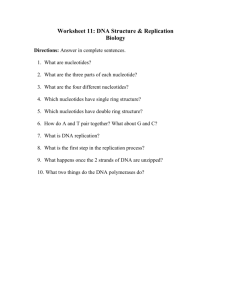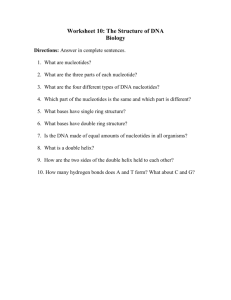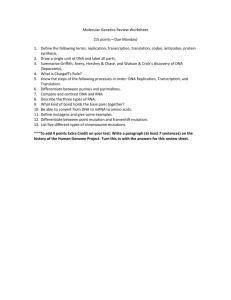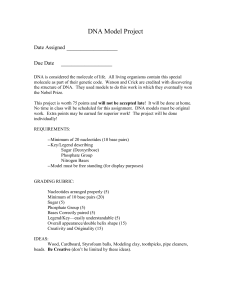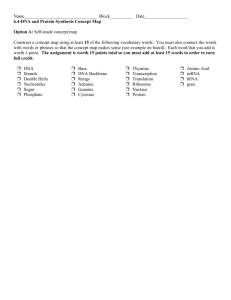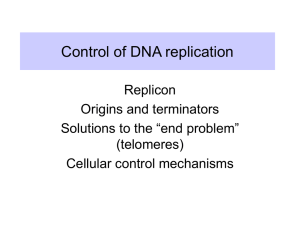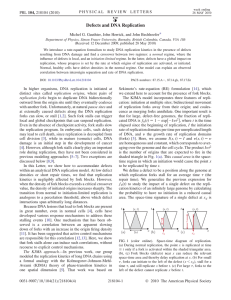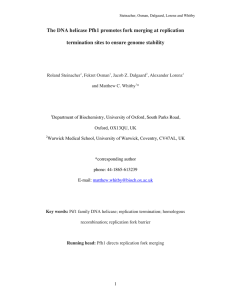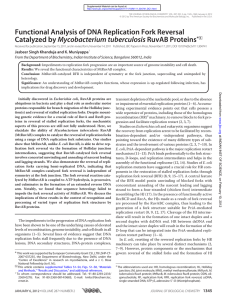Building a DNA Model: An Extra Credit Assignment (160 points)
advertisement
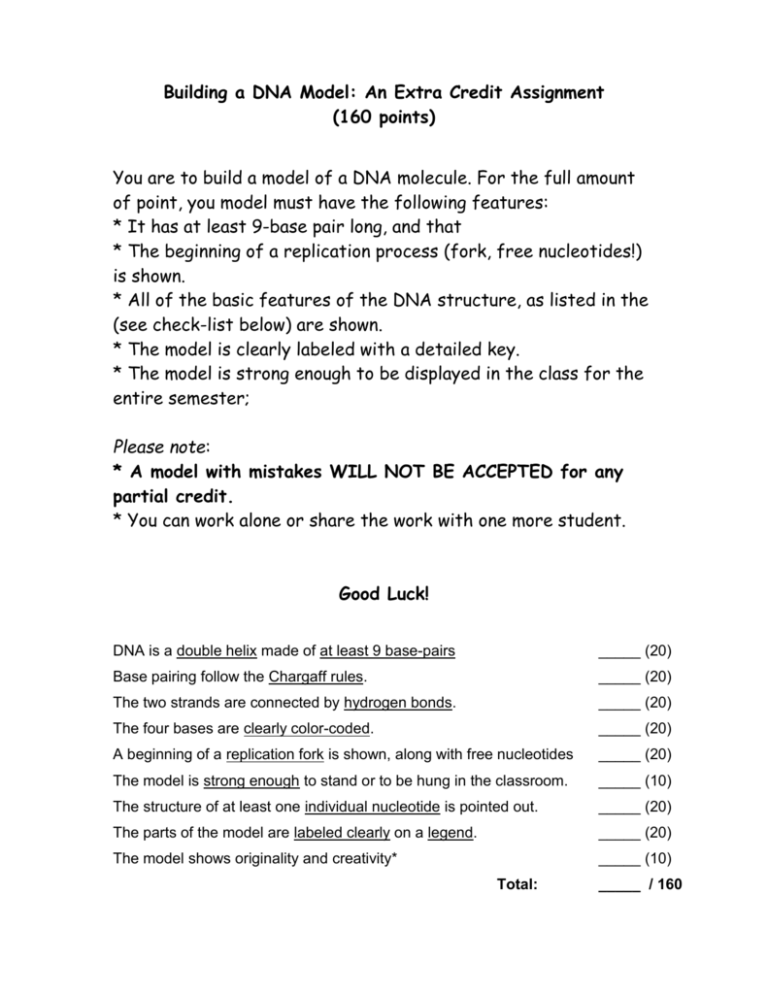
Building a DNA Model: An Extra Credit Assignment (160 points) You are to build a model of a DNA molecule. For the full amount of point, you model must have the following features: * It has at least 9-base pair long, and that * The beginning of a replication process (fork, free nucleotides!) is shown. * All of the basic features of the DNA structure, as listed in the (see check-list below) are shown. * The model is clearly labeled with a detailed key. * The model is strong enough to be displayed in the class for the entire semester; Please note: * A model with mistakes WILL NOT BE ACCEPTED for any partial credit. * You can work alone or share the work with one more student. Good Luck! DNA is a double helix made of at least 9 base-pairs _____ (20) Base pairing follow the Chargaff rules. _____ (20) The two strands are connected by hydrogen bonds. _____ (20) The four bases are clearly color-coded. _____ (20) A beginning of a replication fork is shown, along with free nucleotides _____ (20) The model is strong enough to stand or to be hung in the classroom. _____ (10) The structure of at least one individual nucleotide is pointed out. _____ (20) The parts of the model are labeled clearly on a legend. _____ (20) The model shows originality and creativity* _____ (10) Total: _____ / 160 Name: _________________ Period: ____ DNA is a double helix made of at least 9 base-pairs _____ (20) Base pairing follow the Chargaff rules. _____ (20) The two strands are connected by hydrogen bonds. _____ (20) The four bases are clearly color-coded. _____ (20) A beginning of a replication fork is shown, along with free nucleotides _____ (20) The model is strong enough to stand or to be hung in the classroom. _____ (10) The structure of at least one individual nucleotide is pointed out. _____ (20) The parts of the model are labeled clearly on a legend. _____ (20) The model shows originality and creativity* _____ (10) Total: _____ / 160 Name: _________________ Period: ____ DNA is a double helix made of at least 9 base-pairs _____ (20) Base pairing follow the Chargaff rules. _____ (20) The two strands are connected by hydrogen bonds. _____ (20) The four bases are clearly color-coded. _____ (20) A beginning of a replication fork is shown, along with free nucleotides _____ (20) The model is strong enough to stand or to be hung in the classroom. _____ (10) The structure of at least one individual nucleotide is pointed out. _____ (20) The parts of the model are labeled clearly on a legend. _____ (20) The model shows originality and creativity* _____ (10) Total: _____ / 160
